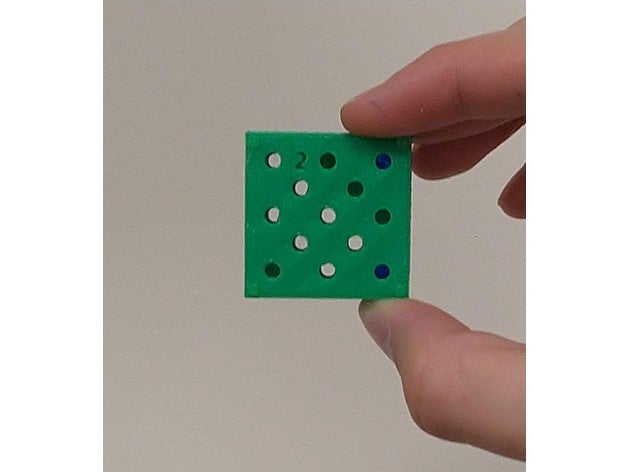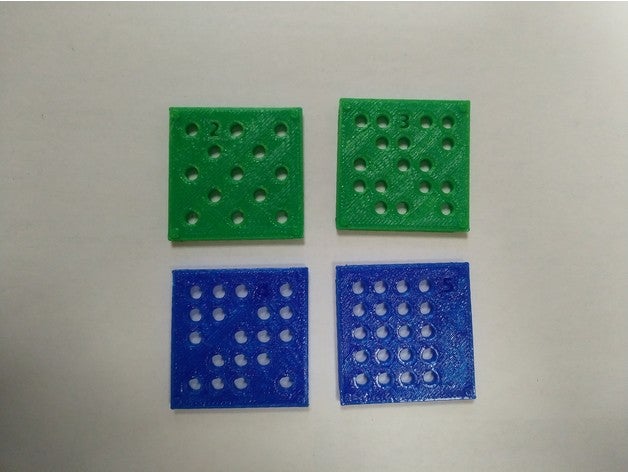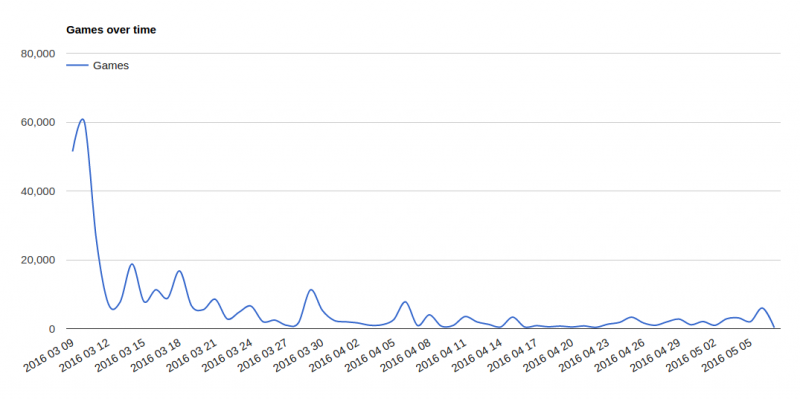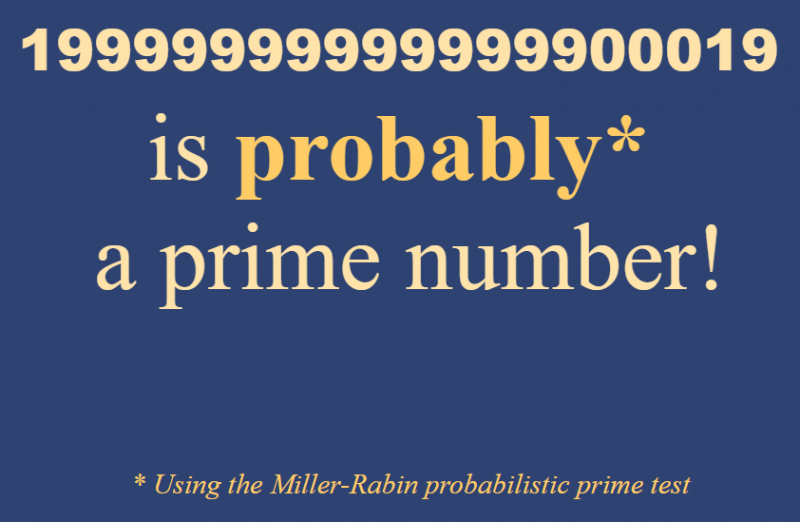At work we’ve got a 3D printer. In this series of posts I’ll share some of the designs I’ve made.

This is something I’ve wanted to make for a long time: a literal sieve of Eratosthenes.
This is a collection of trays which stack on top of each other.
Each tray has a grid of holes, with some holes filled in. The tray with a “2” on it has every second hole filled in; the tray with a “3” has every third hole filled in; and so on.

When the trays are stacked together, the holes you can see through correspond to prime numbers: every other number is filled in on one of the trays.
I went through quite a few iterations of this design. The first version was a series of nesting trays. After printing it, I realised that you might want to put the trays in a different order. After that, I did a lot of fiddling with different ways of making the plates stack on top of each other. The final version has sticky-outy pegs at each corner, and corresponding holes on the other side. I had to add a fair bit of margin around the holes so the wall didn’t go wiggly when printed.
You can download .scad and .stl files for the prime number sieve at Thingiverse.

